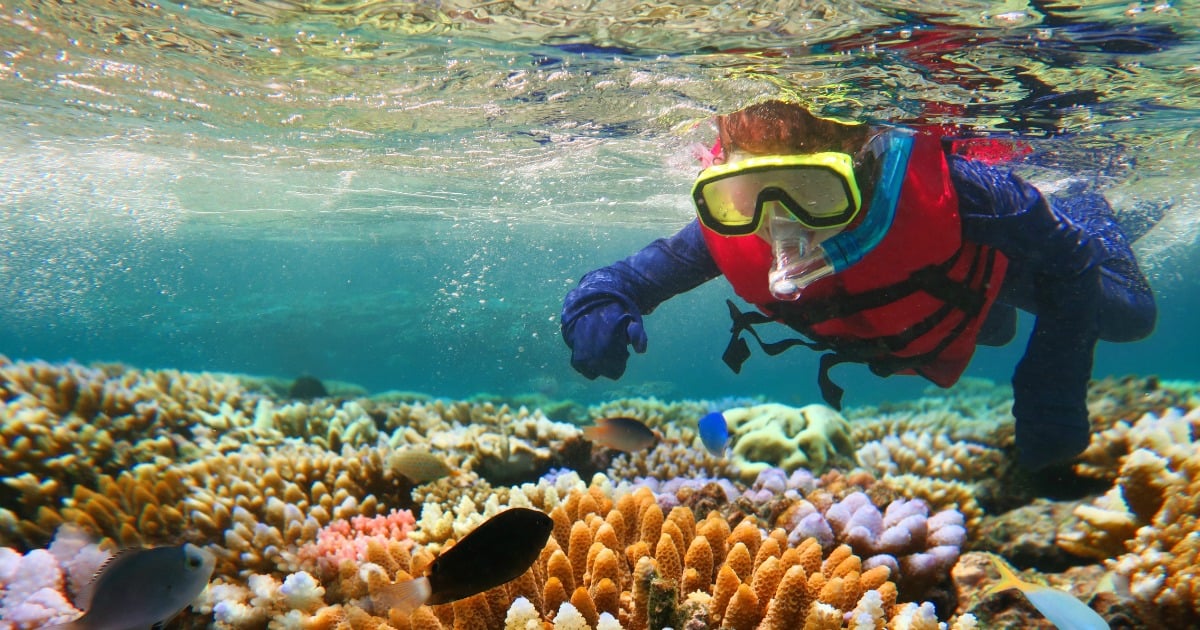My favourite family holiday as a child was two weeks at the Great Barrier Reef in 1992. I spent every possible moment face down in the water, completely enchanted with the reef.
With flippers and snorkel I would swim off the beach straight over spectacular coral and multicoloured fish. When I discovered a particularly captivating piece of reef, I would line it up with landmarks on the shore so I could visit it again the following day.
Now, 25 years later, I’m eight months pregnant with my first child – and the daily news of the reef dying is just another reminder of how different the world is.
My daughter faces a dramatically different future than I did. By the time she is old enough to snorkel, I doubt there will be any of the Great Barrier Reef left. That experience has been stolen from her.
Choosing to have a child in the age of climate change is likely to be the most challenging decision of my life. As we hurtle towards an unstable and dangerous climate, I worry daily about what sort of world I’m bringing her into.



Top Comments
It's a very scary and daunting situation but there are some actions you can take yourself. I was surprised and delighted to discover the savings environmentally and financially with some big efficiency improvements. We're about to get a reverse cycle hot water cylinder and heat pump which will cost far less to run. Heating and hot water are the main components of energy costs for my state. I have also switched to using a smaller car (second hand) for most driving. The car has already paid for itself. We thought about solar panels but it turns out conserving energy is far cheaper. It's also subsidized in some cases for low income loans.
Climate change is big and it's scary but some steps like the car and the hotwater and heat options are within reach for many and can make a substantial difference to the situation.